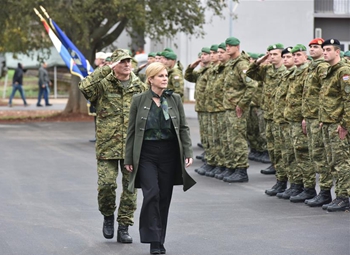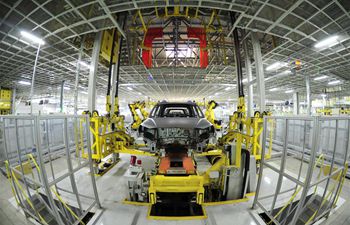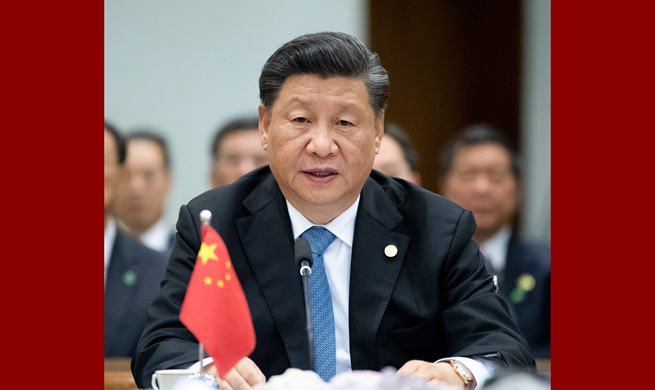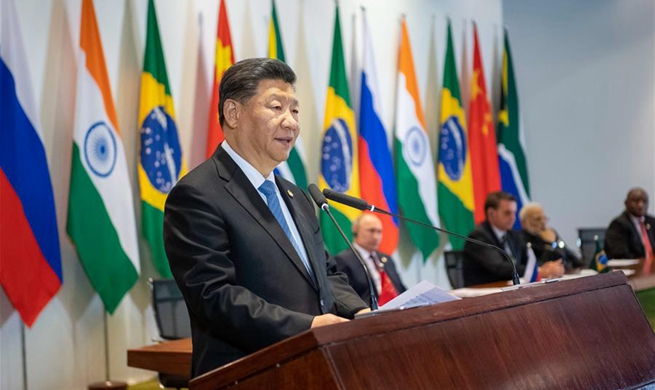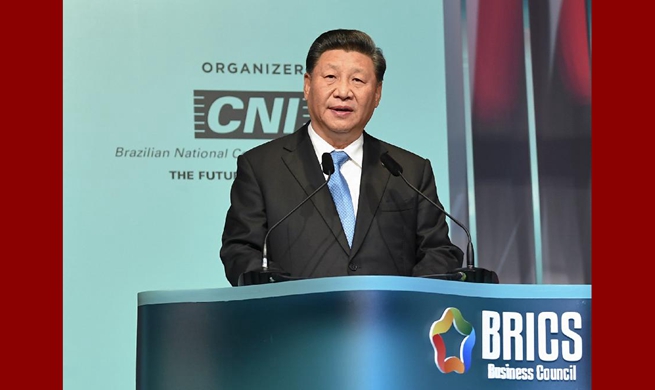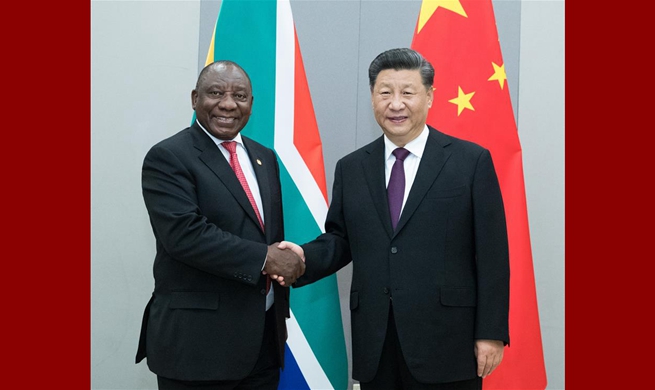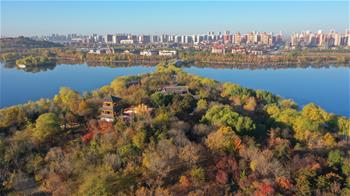KHARTOUM, Nov. 16 (Xinhua) -- The public transportation crisis has recently become a nagging problem for the citizens in Sudan's capital Khartoum, despite efforts made by the transitional government to address the issue.
About a year ago, the transport crisis was one of the reasons for a popular uprising in Sudan that succeeded on April this year in toppling former Sudanese President Omar al-Bashir who ruled the country for 30 years.
The officials in Khartoum acknowledged the escalating transport crisis, but attributed it to lack in public transport vehicles.
To this end, Omran Bashir, head of operation and follow-up room in Khartoum State government, said the transportation issue has now become the concern of the entire government in the state.
"Frankly we are suffering from the lack of public transport vehicles, of which some cars are broken," Bashir told Xinhua on Saturday.
He added that the concerned authorities are working to introduce new buses to resolve the crisis, noting that efforts are underway in this regard.
Meanwhile, Abdalla Abdel-Fattah, chairman of Khartoum State's Chamber of Public Transport, told to Xinhua that "in the past, the number of operating public transport vehicles was 48,000 vehicles, but this number has now dropped to 11,000."
There are other reasons for the above situation which include the absence of controlling laws and non-abidance of organizing regulations by those working in the transport field.
Khartoum State has been witnessing increasing population due to growing migration from rural areas, whereby about 9 million people currently live in the capital Khartoum, according to official statistics.
A tour by a Xinhua team to public transport stations in central Khartoum confirmed that the stations were overcrowded by citizens waiting for public transport vehicles to get back to their homes.
A number of citizens, speaking to Xinhua, complained about the lack of vehicles and the difficulty they face to get a vehicle to transport them from the workplace to their home areas.
"There is no authority to concern with the citizen's situations and their suffering regarding the transportation issue," Iyssa Ibrahim, a Sudanese citizen, told Xinhua.
He urged the government to work seriously to overcome the transport crisis.
Murtada Altoum, a student at Sudan's Al Neelain University, for his part, told Xinhua that transportation constitutes a real problem that causes real suffering for the citizens.
"As from 1:00 pm and onward there is a big transportation problem. For example, if you leave the university at 2:00 pm, you will not find any transportation," he noted
Specialists see that the transportation problem requires monitoring by the government.
In this connection, Mohamed Saeed, a Sudanese journalist concerned with service sector, told Xinhua that "the government does not support the transport sector."
He said there is increase in the customs fees of bus imports and spare-parts, stressing the need for the government to reduce these fees to enable the private sector enter into the field.
Last week, Sudan's Council of Ministers issued a decision directing all ministries, government institutions and regular forces to transport the citizens by government vehicles for free during the working hours, the end of the working day and during official holidays.


